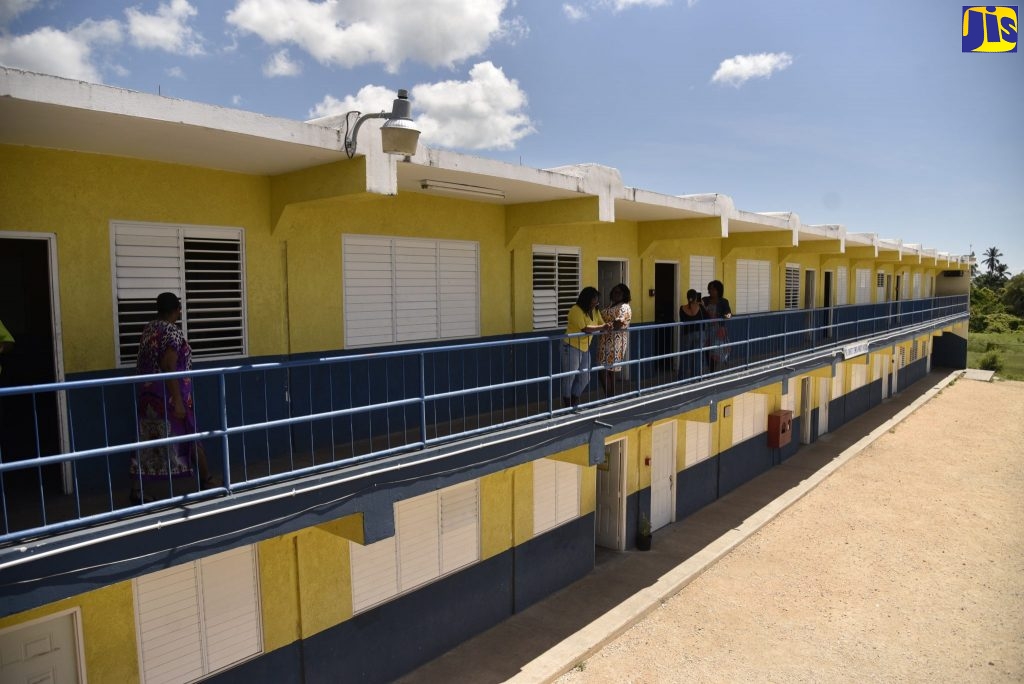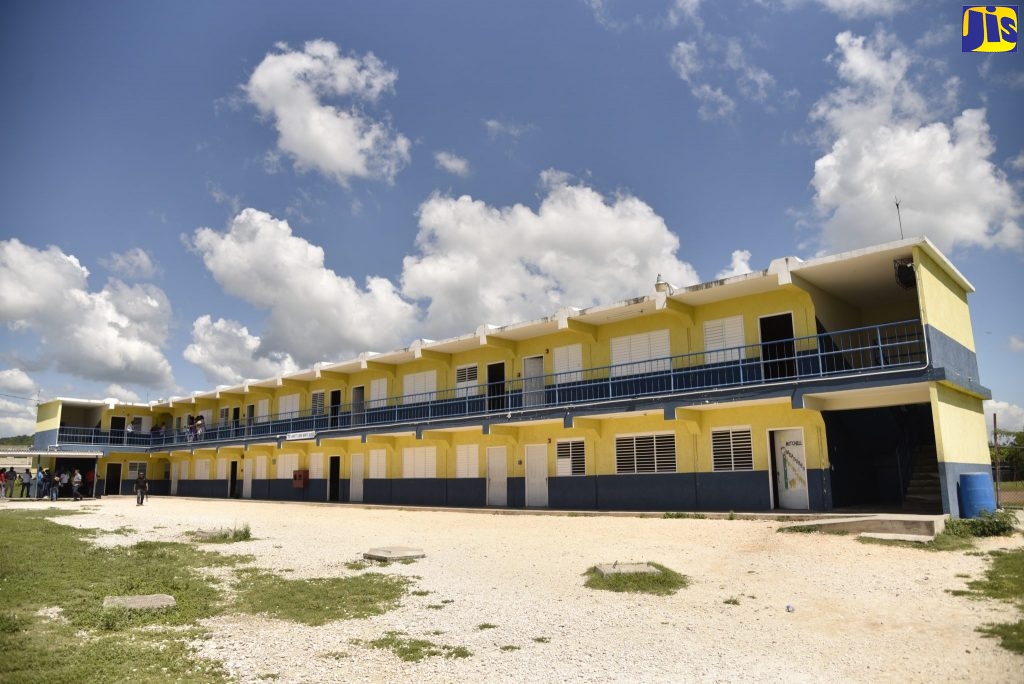Old Harbour Primary School Transformed Through CDB Support
By: , March 21, 2020The Full Story
Three years after removal from the shift system, the Old Harbour Primary School in St. Catherine is seeing positive results across the board.
Principal George Goode says the ending of shifts has proven to be a turning point in the life of the institution, so much so that the inspection rating undertaken by the National Education Inspectorate (NEI), an independent government body, improved from unsatisfactory in 2012 to satisfactory in 2018.
The elimination of the shift system was made possible with expansion of the school buildings accommodated through a $79-million grant from the Caribbean Development Bank (CDB), which was implemented by the Jamaica Social Investment Fund (JSIF).
The funding provided for construction of a new block consisting of 10 classrooms in 2016 and the introduction of several social programmes.
Old Harbour Primary School was established in the 18th century. It is one of the oldest schools in Jamaica and the first to be established in the town. The school changed its location in 2000 to facilitate more students, as it was bursting at the seams.
At the time, the school population varied from 1,600 to 1,800 students on the shift system.
Principal Goode says that as attendance grew, the student-teacher ratio was as much as 60:1, meaning that for every 60 students there was one teacher.
During a recent tour of the facility by representatives of the CDB, the Principal expressed deep appreciation for the Bank’s timely intervention and the huge impact it has had on the life of the school.
He explains that the ending of shifts at the school has been of significant benefit to the students, resulting in more contact hours with teachers, greater participation in extracurricular activities and all-round improvement in performance.

Operations Officer at the CDB, Karl Pivott, says the improvement project undertaken at the school was not only geared at assisting the Government of Jamaica’s policy to eliminate the shift system but also targeted at poverty reduction in line with the Bank’s strategy.
He says he is pleased at the big difference that the project has been making in the lives of students and teachers.
“We at the Bank think this is money well spent, as the improvements to the school are benefiting students from vulnerable communities,” he says, adding further that “the better school ranking and the greater focus on extracurricular activities show the impact that sufficient learning space has on students.”
Mr. Pivott notes that “with the improvement in the school’s ranking and the greater focus on extracurricular activities, even if it has impacted one student, we know that we have done good work”.
Principal Goode says he is happy that shifts at the school are a thing of the past. He notes that the CDB through JSIF “did not just come here to institute a building but facilitate programmes that have been very impactful and far-reaching”.
He recalls that while on the shift system, some parents would drop off students on the afternoon shift from as early as 7:00 a.m., five hours before they were due to be at school. Conversely, students from the morning shift would hang around until late evening when they could be picked up.
This would create a disturbance for the other students in class, and there were also the attendant risks of leaving children in an unsupervised situation.
The Principal is also grateful for the increase in contact hours. He notes that for many students in full-time institutions, their contact time with teachers is approximately seven hours, while those on the shift system have five hours.
“Students at Old Harbour Primary would be at a disadvantage, and this would, in turn, impact the performance of the students,” he points out.
He says there has also been significant improvement in student performance.
“For the last three years, the school has improved in all subject areas,” he says, noting a 16 per cent increase in passes for subjects such as mathematics.
There is also improvement in social programmes and extracurricular activities. Mr. Goode says the school now boasts 15 to 20 clubs and societies compared to five before the funding intervention.
He notes that these groups are making an impact, with the Red Cross Club offering support to the Mustard Seed Home for children with disabilities by donating canned goods and toys garnered through collection drives.

“School is not just about the academics. The shift system also impacted the social programmes, such as clubs and societies that are used for the development of the students and the improvement of their life skills, and to unearth the talents within them,” he points out.
The Principal further highlights assistance with a literacy programme, equipping the school with laptop computers, books and a projector.
Teachers were also trained in special needs education and there was a ‘Break the silence campaign’ that taught teachers how to identify signs of abuse.
The Principal says that many of the students come from poor communities and have behavioural challenges, and so there were intervention and empowerment sessions with stakeholder groups such as the Child Protection and Family Services Agency (CPFSA), the National Parenting Support Commission (NPSC) and parents.
Through this initiative, there has been an increase in the number of students now willing to break the silence about being abused.
One of the biggest impacts of the CDB-funded project is the reduction in teacher to student ratio, which now stands at an average of one to 34.
“I’ve also seen a shift in the culture. Even though we don’t have the ideal situation, the change in the school from unsatisfactory to satisfactory, the results moving up, give the teachers that level of satisfaction and encouragement to push a little harder,” Mr. Goode expresses.
In addition to the new classrooms, the project included the installation of wheelchair ramps and rails to make the school disabled-friendly.
There was general renovation and painting of the entire school; improvement in canteen operations and garbage disposal; training for the ‘wash programme’, which focuses on sanitation and hygiene; and general upgrading of bathroom facilities for both teachers and students.
The Principal says that the school is also contributing to Jamaica’s track and field legacy, producing the island’s top 100-metre (class three) high-school athlete, Christopher Scott, who was discovered at the National Primary School Athletic Championships.
Scott was invited by Minister of Culture, Gender, Entertainment and Sport, Hon. Olivia Grange, to assist in the unveiling of Usain Bolt’s statue while still attending Old Harbour Primary.
Mr. Goode is still delighting in the improvements to the school and says that he is “eternally grateful to JSIF and CDB for all the support that was given”.




